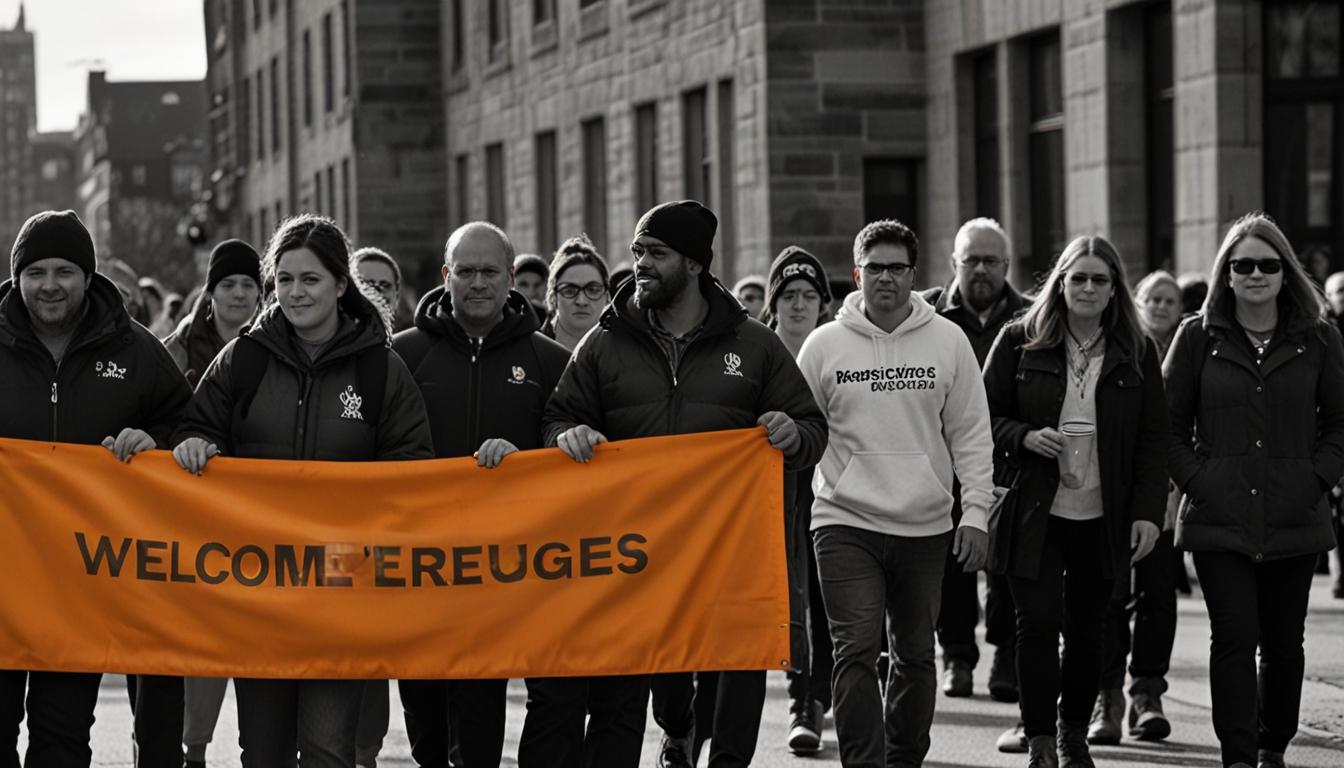A community event in Halifax celebrates refugees in Canada amidst a global displacement crisis, while the Canadian government extends work visa eligibility for Israelis during the Israel-Hamas conflict, showcasing efforts to support immigrants and displaced individuals.
Walk with Refugees Event in Halifax Draws Support Amid Global Displacement Crisis
The Walk with Refugees event took place in Halifax on Sunday, organized by the Halifax Immigration Partnership. This event, originally established in 2015, resumed after a hiatus due to the COVID-19 pandemic. The event occurred at a time when global displacement numbers have reached record levels, as highlighted by the United Nations refugee agency.
Ariane Savi from the Halifax Immigration Partnership emphasized the significance of the event in bringing communities together to celebrate refugees who have settled in Canada. Various regional newcomer support groups also collaborated in organizing the event.
Speakers at the event included Ethiopian refugee, Fekadu Abera, who found employment in the tourism and hospitality sector with the help of Care for Refugees. Abera spoke of the potential and hope for refugees with adequate support. Additionally, Afghan refugee Asif Sadi, who recently moved to Nova Scotia, shared his positive experience acclimating to life in Canada after fleeing due to his association with the Canadian Armed Forces.
Concurrent with this local event, the UN refugee agency reported that 117.3 million people were forcibly displaced globally by the end of last year, with projections of increasing numbers.
Canada Extends Work Visa Eligibility for Israelis amid Israel-Hamas Conflict
The Canadian government has extended its work visa initiative for Israeli citizens until July 31, 2025, amid the escalation of the Israel-Hamas conflict and increasing tensions with Hezbollah. This extension follows the initial announcement in February during the Israel-Hamas war.
Israeli applicants must fulfill two criteria to qualify for the visa: possession of a tourist visa and having relatives in Canada, either citizens or permanent residents. The extension decision is attributed partially to political pressure from the Jewish community in Canada.
Michal Harel, who relocated to Canada in 2019 and co-founded the non-profit website ovrimtocanada.com, noted the significant influx of Israelis since the start of the initiative. Harel’s platform aids Israelis through various stages of immigration, offering guidance on Canadian bureaucracy, employment, health, and community life.
The immigration process can be costly, with expenses including consultation fees, airfare, rent, and additional settlement costs. Tuition fees for international students further add to the financial considerations for prospective immigrants.
Both events highlight Canada’s ongoing efforts to support displaced individuals and immigrants, providing pathways for resettlement and integration.













